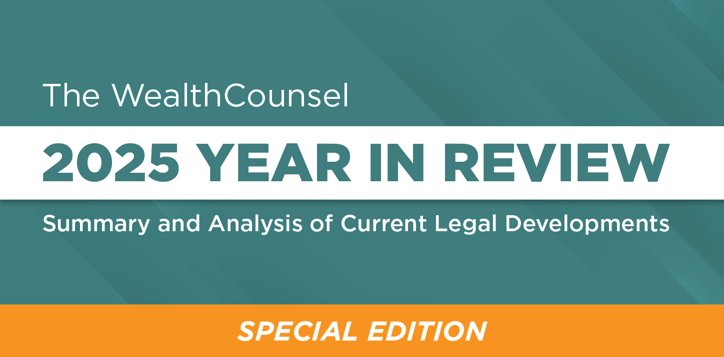
The past year has been full of significant developments in estate planning, business law, elder law, and special needs law. To ensure that you stay informed of these legal changes, we have highlighted some of the year’s most noteworthy developments and discussed how they may impact your estate planning, elder law, and business law practices, including
- enactment of the One Big Beautiful Bill Act (OBBBA),
- denial of a deceased spouse unused exclusion (DSUE) claim,
- holding a nursing facility has standing to challenge a resident’s adverse Medicaid eligibility decision,
- issuance of an interim final rule exempting US persons and domestic companies from Corporate Transparency Act (CTA) reporting requirements, and more!




